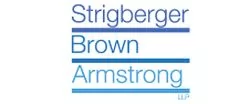In Lamothe v. Sudbury Trail Plan Association, 2023 ONSC 3176, the Superior Court refused to allow the defendants to deliver late expert reports. The defendants attempted to bring a motion to be granted leave to deliver late expert reports which was opposed by the plaintiffs.
Background
The action arose from a snowmobile accident that occurred on February 4, 2014, involving the plaintiff Gaeten Lamothe. As a result of the accident Mr. Lamothe alleged to have suffered injuries to his abdomen which required surgery and to be fitted with an ileostomy bag.
The statement of claim was issued September 12, 2014. The trial record was filed in November 2018 and the judicial pre-trial took place in June 2019. At the time of the judicial pre-trial, the plaintiffs had delivered several expert reports, including one from a gastroenterologist.
In December 2019, the lawyers consented to the action being set for an eight-week jury trial, beginning on September 1, 2021. As a result of pandemic related delays, the plaintiffs were not available for trial until 2023. In March 2022, the lawyers consented to a fixed-date eight-week jury trial beginning September 5, 2023. The date was confirmed via an assignment court in June 2022.
On February 1, 2023, the defendant STPA requested consent for a gastroenterologist expert with the proposed assessment time and place not provided to the plaintiffs until April 20, 2023. The defendant Talevi requested an orthopedic, psychiatric and gastroenterology assessment on April 11, 2023. Details of the time and location of the assessments were provided on May 4, 2023.
The plaintiffs argued that the defendants were out of time to bring the motions and the motions should be dismissed.
Rule 48
Rule 48 of the Rules of Civil Procedure provides that, after an action has been set down for trial, leave is required to bring motions. The test for leave is confirmed in Nelson v. Chadwick, 2019 ONSC 2063 at paragraph 35 as follows:
- The court should consider the facts known to the party seeking leave as of the date that the party consented to the action being placed on the trial list;
- Whether there has been an important change in the facts since the party consented to the action being placed on the trial list;
- The object of the request for leave; and
- Whether the relief sought would likely be granted if leave were given to bring the motion, notwithstanding the party's consent that the matter be placed on the trial list.
Rule 53.03
Rule 53.03 provides that parties must deliver expert reports not fewer than 90 days prior to the judicial pre-trial; reply reports, 60-days prior to the judicial pre-trial. Rule 53.03(4) permits the parties, on consent, or the court, on motion, to extend the time to deliver expert reports. Pursuant to Rule 53.03(3) experts cannot testify at trial without leave if their report is not filed in accordance with the Rules.
In assessing whether leave should be granted, Rule 53.08 provides that a party seeking leave bust satisfy the trial judge that:
- There is a reasonable explanation for the failure; and
- Granting leave would not,
- Cause prejudice to the opposing party that could not be compensated for by costs or an adjournment, or
- Cause undue delay in the conduct of the trial.
Decision
The Court decided not to grant leave to deliver the late expert reports. The Court determined that there was no explanation for the defendants' delay in obtaining the reports. The defendants argued that the late delivery of the expert reports would not delay the trial, which the Court disagreed. As the trial was three months after the motion, the Court noted that it was unrealistic to expect the plaintiffs' experts to be able to respond the any defendant reports before the commencement of the trial.
It was decided that the situation was of the defendants' own making, which could not be used to justify the prejudice that would occur with the trial was adjourned to accommodate the late reports. The prejudice to the plaintiffs could not be compensated by costs and would be exacerbated by any adjournment.
Takeaways
The decision in Lamothe emphasizes that even if there is a reasonable explanation, allowing a party to obtain late expert reports can cause undue delay in an action. Serving late expert reports, leaves the opposing party rushing to decided whether to respond in advance of a trial. This rush can only be combated by adjourning any trial, which would cause prejudice to a responding party.
To avoid any costs exposure, and delay to litigating a matter, parties should pay close attention to Rule 53.03 and the consequences for a failure to comply with the deadlines within the rule.
See Lamothe v Sudbury Trail Plan Association, 2023 ONSC 3176 (CanLII)
The content of this article is intended to provide a general guide to the subject matter. Specialist advice should be sought about your specific circumstances.

